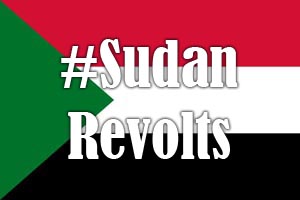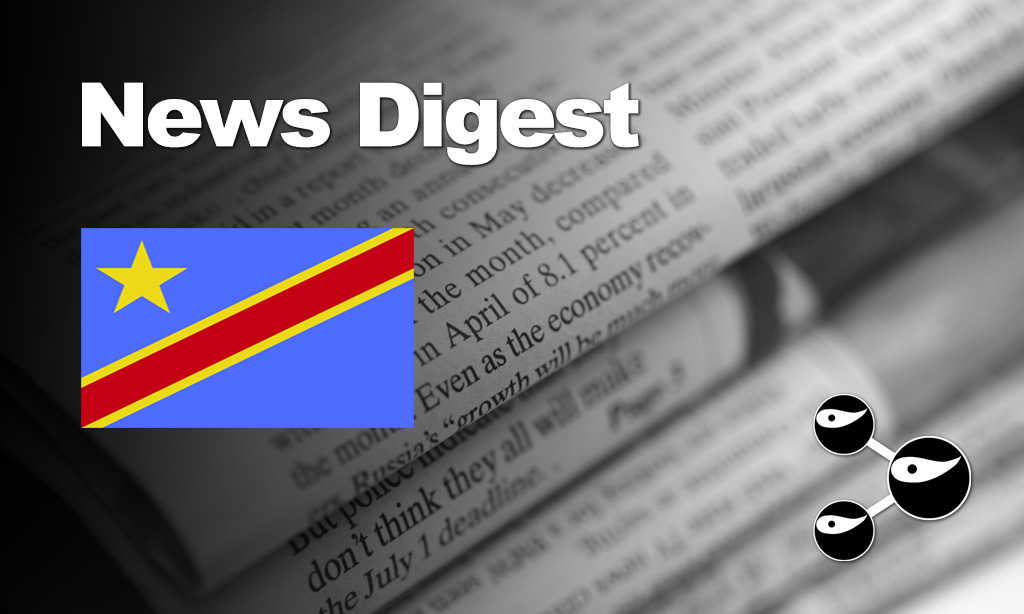 Must-read articles and tweets on #SudanRevolts:
Must-read articles and tweets on #SudanRevolts:
Sudanese president officially signs off on increasing minimum wage – Sudan Tribune
The Sudanese President Omer Hassan al-Bashir issued a decree to implement a unified structure of remuneration for the year 2013 and approved raising the minimum wage to 425 pounds ($96.59 according to official exchange rate) which becomes effective retroactively as of January 2013. The decision excludes judges, advisers to the Ministry of Justice as well as public sector banks . The minimum wage in Sudan was 165 pounds but the Sudanese government announced several months ago that it will supplement it by adding 200 pounds as part of what is better known as the “presidential grant”. But many sections of the government claimed that the extra 200 pounds were never received by their employees. The face of the presidential decision and the Ministry of Finance to schedule workers dues since January 2013. The timing of the decree coincides with one of the worst protests Sudan has witnessed in years over the government’s move this week to lift fuel subsidies which almost doubled their prices…
Sudan secret agent admits in court that police gave orders to shoot at demonstrators – Radio Dabanga
An officer of the secret police in Khartoum admitted today, Thursday, in court that he received orders from the police high command to fire on demonstrators with live ammunition. Sergeant Hafiz Mohamed Abdallah confirmed to the judges of Haj Yousif Court that he had to use live bullets to quell the protests against the hike of fuel prices. According to doctors, about 210 people were killed during the demonstrations over the past few days. The secret agent confirmed the accusation that police officers dressed in civil clothes fired on people with live ammunition. Agents had to testify during the trial of 35 demonstrators accused of violence, sabotage and assault acts on public and private property. One of the defence lawyers, Mutasim al Haj, told Radio Dabanga that the judge interrogated the secret agents: “Their testimony was extremely important. It was the first time that they officially acknowledged that the police high command ordered the shootings”. Al Haj is member of a team of 12 lawyers defending the arrested demonstrators. The court set bail for the detainees at SDG20,000 ($5,000)…
UN Expert deeply concerned at mass arrests and heavy media censorship during protests in the Sudan – StarAfrica.com
The United Nations Independent Expert on the situation of human rights in the Sudan, Mashood Adebayo Baderin, today expressed deep concern at the large number of arrests and detentions by the authorities since mass protests began on 23 September in parts of the Sudan, as well as the heavy censorship on local media. According to reports, at least 800 activists, including members of opposition parties, journalists, and others have been arrested amid on-going demonstrations over cuts in fuel subsidies, in which up to 50 people were reportedly killed by security forces. Those detained are being held incommunicado, with no access to lawyers or their families. “I urge the Government of the Sudan to charge all those arrested with a recognizable offence or immediately release them,” Mr. Baderin said. “Furthermore, the Government must allow the detainees access to their families, legal representation and medical care.” The UN Independent Expert also called on the authorities to end censorship on newspapers and media outlets and enable basic freedoms, including the freedom to demonstrate peacefully. “Civilians have a right to assembly and peaceful demonstrations under international law, and the Government of the Sudan has an obligation to respect these rights under its constitution and under international law,” he underscored…
In Sudan, “freedom for my mum” by Dan Moshenberg
In Sudan, the numbers of women political prisoners are rising, largely because the numbers of women protesting the government and the state are rising. Last week, in response to both economic difficulties stemming from South Sudan’s independence (and loss of oil revenues) and World Bank ‘advice’, the government of Sudan ended gas subsidies. Good ‘economic’ sense? Doubtful. A hardship for working households, and in particular for women? Definitely, thanks to the impact on both transportation and household goods. So, again, the women of Sudan took to the streets. Last year, around this time, women university students protested the astronomical rise in meal and transportation costs. The protests spread like wildfire, and the government remained in place. The struggle continued. Women’s groups and others have continued to organize in the intervening period. When the news of the new price hikes hit, women hit the streets. This time the protests started in rural areas and cities other than Khartoum, places like Madani, where novelist Rania Mamoun engaged in peaceful protest. She, her sister and brother, along with others, were hauled off, beaten, threatened, intimidated…
“@dardachat: Pic from today’s female demonstration in Shambat neighborhood, Khartoum North #SudanRevolts pic.twitter.com/VQwCxSYbXd” #abena
— Munchkin (@BSonblast) October 3, 2013









